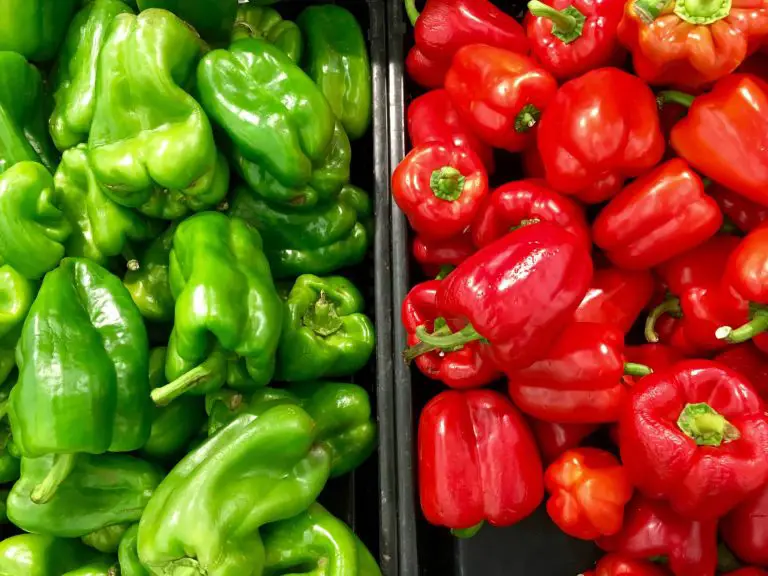Two favorite seasonings found on many kitchen counters and tables: salt and pepper. They add flavor and spice to many dishes, whether it is grilled meat or roasted vegetables. Dog owners often like to share nibbles of their meals with their dogs. It is important to know, can dogs eat pepper?
Dogs can eat many whole foods found on our plates at mealtimes. The concern is the condiments we add to our food. Can dogs eat pepper? Pepper in small quantities is not toxic to dogs. It is not a food that is added to their meals. A few sprinkles of this spicy condiment can be safely consumed by your dog.
In this article, Can Dogs Eat Pepper, you will learn about black pepper, how much a dog can safely consume and the symptoms when a dog has had too much pepper.
- Does Black Pepper Benefit a Canine’s Health?
- How Much Can My Dog Eat?
- Symptoms of Too Much Pepper
- Can Dogs Eat Pepper?
- Alternatives to Black Pepper
Black pepper is a flowering vine of the pepper family that produces a small fruit called a peppercorn. The peppercorn is the unripened fruit of the plant.
The peppercorn is often dried and ground up to be used as seasoning in many different types of dishes. The color of the peppercorn indicates the degree of ripeness. White, green, and black peppercorns come from the same plant.
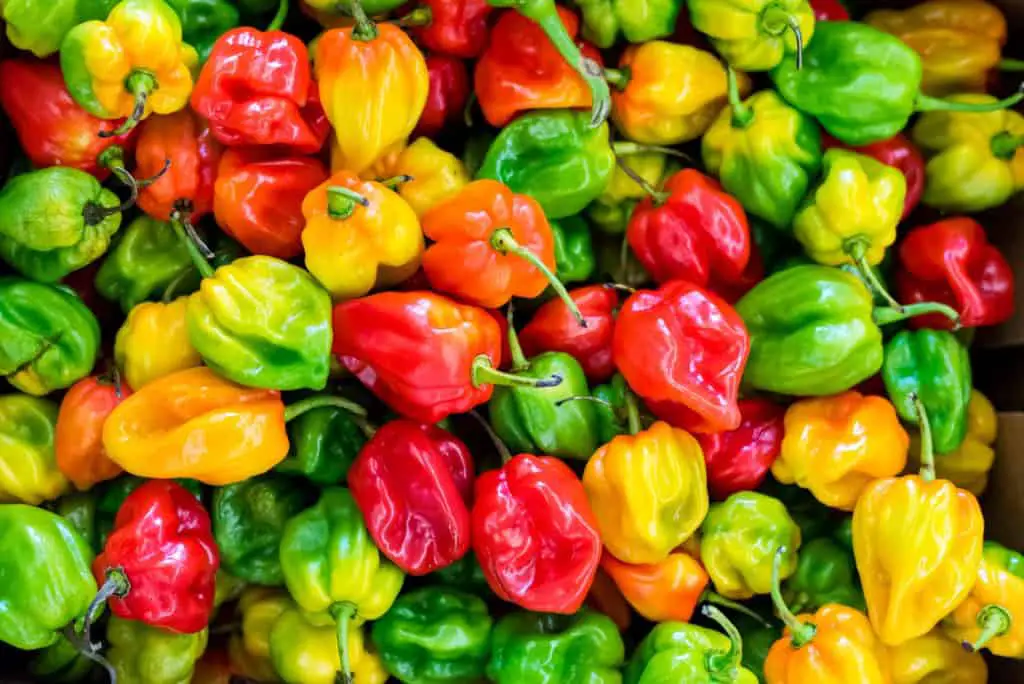
Related Articles:
Does Black Pepper Benefit a Canine’s Health?
Can dogs eat pepper? Yes, most dogs can have a small amount of pepper without any trouble. Black pepper contains small amounts of vitamin K, iron, manganese, and piperine. Traditional medicine uses black pepper as a way to aid in relieving insomnia, toothaches, and constipation in humans.
How does pepper benefit canines? The key component in black pepper is piperine. Piperine increases a dog’s ability to absorb vitamin B12, beta-carotene, curcumin, and selenium. Curcumin is the active ingredient in turmeric that is used in many joint and hip support supplements.
Black pepper has natural antibacterial properties and aids with digesting food. Although it is not necessary to add it to a canine’s diet, your dog can still benefit from black pepper.
How Much Pepper Can My Dog Eat?
Most dogs can safely consume small quantities of black pepper. Grilled chicken that is lightly seasoned with black pepper should be tolerated by your dog just fine. Your dog might be turned off by heavily peppered meats like steak or fish.
One big difference between canines and humans is our desire to season our food. We add salt and freshly ground pepper to meat, vegetables, and egg dishes to enhance the flavor. Dogs do not need that flavor enhancement.
Any table scraps or daily treats should not be more than 10% of your dog’s daily food intake. When dog owners share a bit too much with their dog, they can struggle with unwanted weight gain adding strain to joints and leading to other health complications.
Sharing a small piece of sweet potato that was lightly seasoned with your dog should be enjoyable. Too much pepper can cause your dog to feel uncomfortable.
Related Articles:
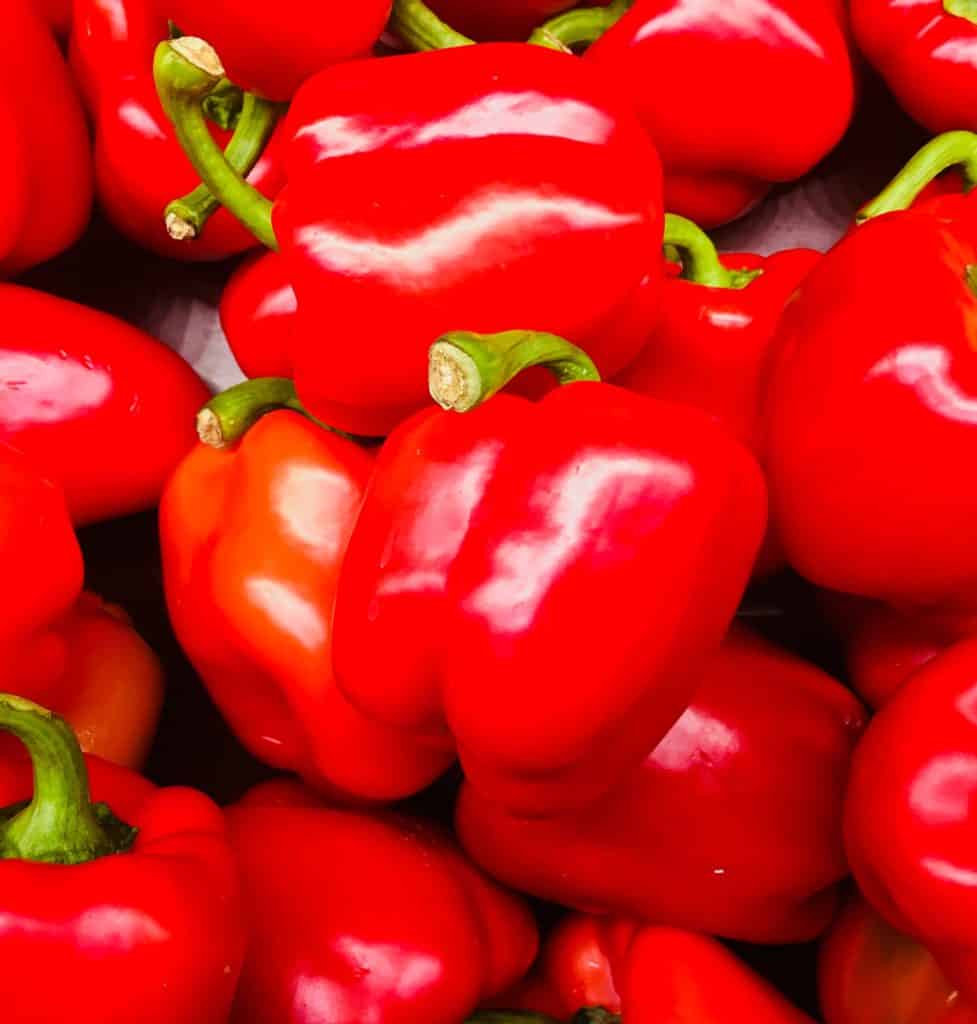
Symptoms of Too Much Pepper
It is always good to check to see if our dogs can eat new spices or condiments. Can dogs eat pepper? Most dogs can tolerate and even benefit from small amounts of black pepper.
We all know accidents happen, like your dog helping themselves to your burger or eating food dropped on the floor. Perhaps they inhaled the freshly ground black pepper you added to a side dish.
When a dog sniffs black pepper they might respond immediately with excessive sneezing. Other symptoms of sniffing too much pepper is coughing and respiratory issues like a burning sensation with more sneezing. In some cases, inhaling too much pepper could lead to a deprivation of oxygen.
What kind of symptoms would your dog exhibit if they ate too much pepper? Large amounts of black pepper can irritate the lining of a dog’s stomach and intestines. Your dog might begin to cough or vomit if they ate too much pepper.
Other symptoms include diarrhea, abdominal pain and discomfort, indigestion, and a gurgling gut. If you have questions about how to help your dog connect with your local veterinarian.
Related Articles:
- Ultimate Guide: How To Take Care Of A Puppy
- Ultimate Guide: How To Take Care Of A Dog
- Ultimate Guide: How To Take Care Of A Senior Dog
- The Benefits of Owning a Dog
- Top 12 Tips for First Time Dog Owners
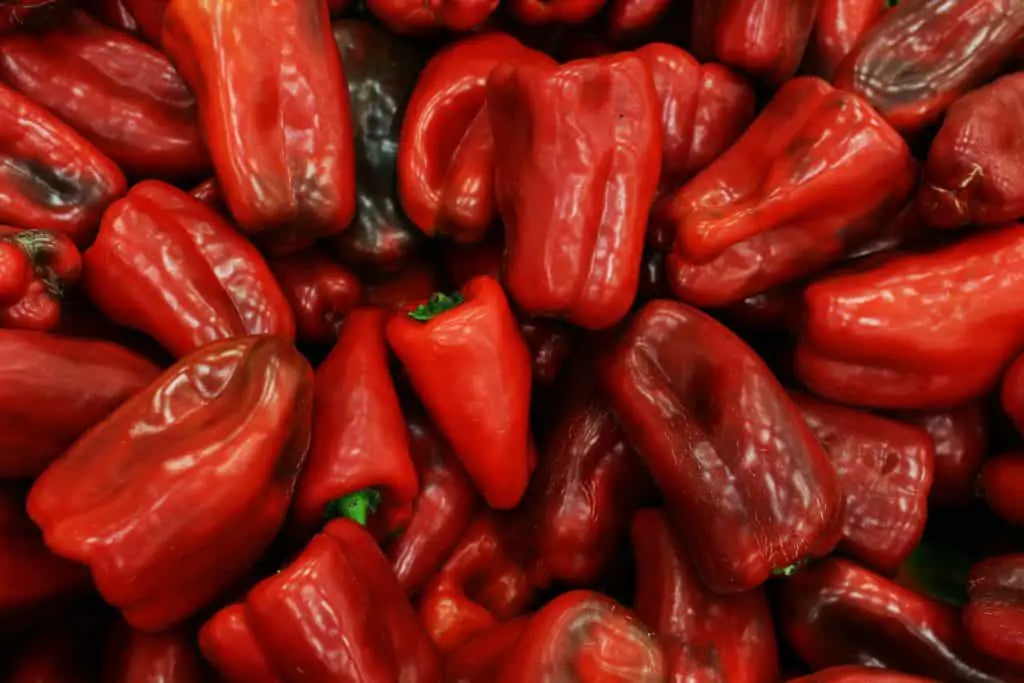
Can Dog’s Eat Pepper?
Dogs can eat black pepper in small quantities. It is not likely they will enjoy the extra seasoning, but rather the food that it was on, such as a piece of chicken, boiled egg, or summer squash.
In general, black pepper is not a flavor or spice that dogs are drawn to eat. In fact, many people used ground black pepper to deter their dog from chewing on items around the house.
If your dog tolerates small amounts of black pepper on food that you are sharing with them, it is unlikely they will get ill. Keep in mind that large amounts of black pepper can lead to gastrointestinal upset. Freshly ground pepper can irritate your dog’s nasal passage with a burning sensation and sneezing.
Dogs naturally stay clear of black pepper as it not a food they recognize as savory. Some dogs might be willing to overlook the pepper sprinkles to get to the small piece of meat. There is no need to go out of your way to add seasoning such as black pepper to your dog’s dish.
Related Articles:
- A Review of the Top 5 Best Dog Bones For Aggressive Chewers
- A Review Of The Top 5 Best Bone Broths for Dogs
- How to Get Your Dog to Eat
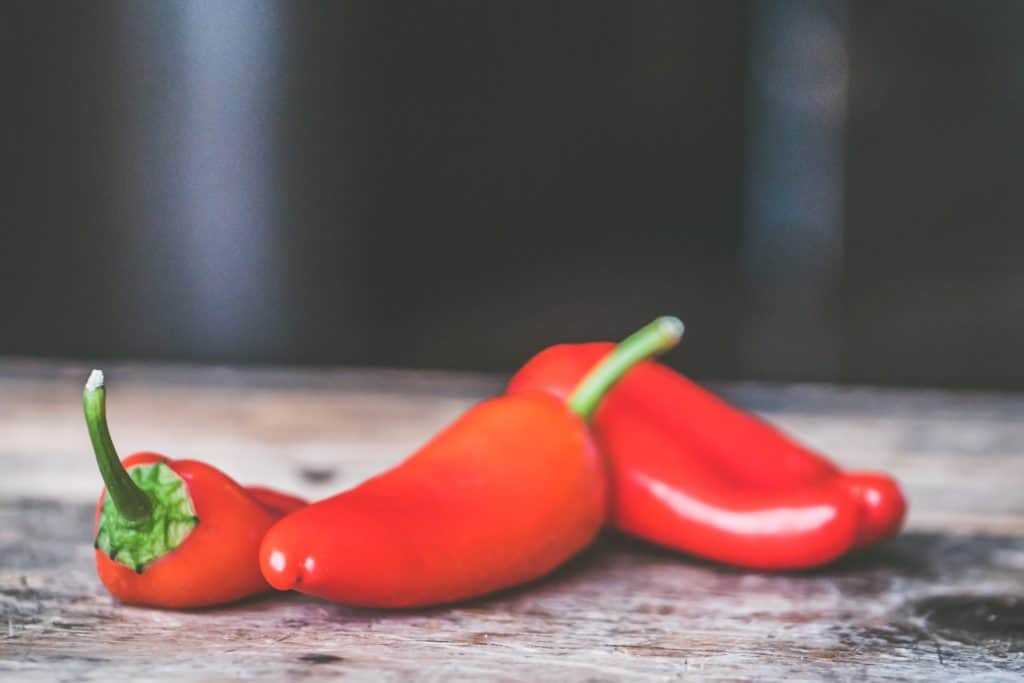
Alternatives to Black Pepper
Are you looking for a healthy food topper for your dog? There are many vegetables that make a wonderful addition to your dog’s kibble. Your dog can benefit from a couple steamed and cooled broccoli florets. Learn more at Can My Dog Eat Broccoli.
Chopped and steamed celery is another nutritious meal topper for your dog. Can dogs eat celery? Yes, celery makes a tasty treat or snack for your dog.
When it comes to feeding our dogs food from our plate, it is always best to find out if it’s safe for them to eat. Many vegetables and some fruit can be nutritious for our dogs. Unlike humans, dog do not need condiments like black pepper added to their food.
Please read our Legal Disclaimer

